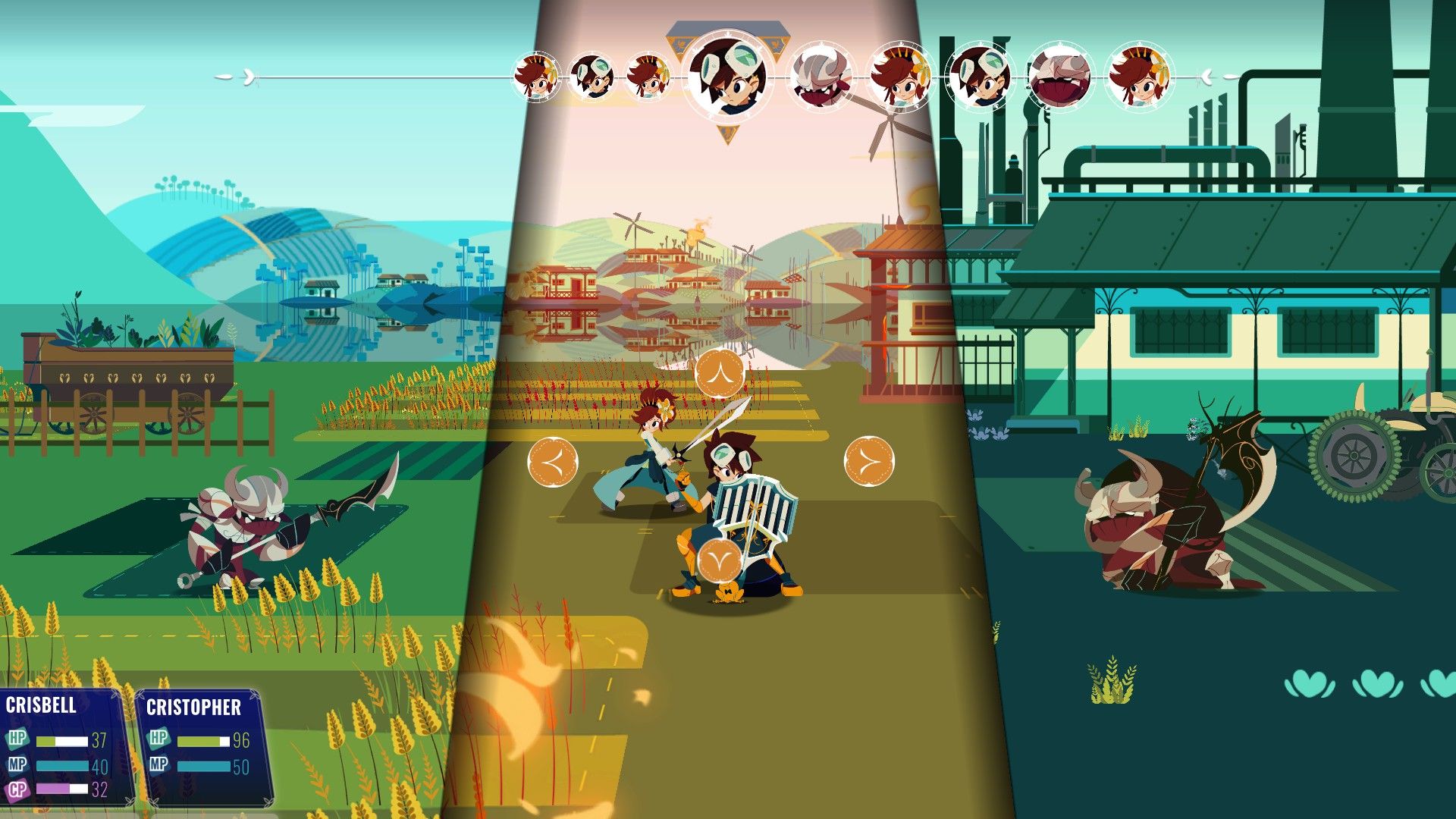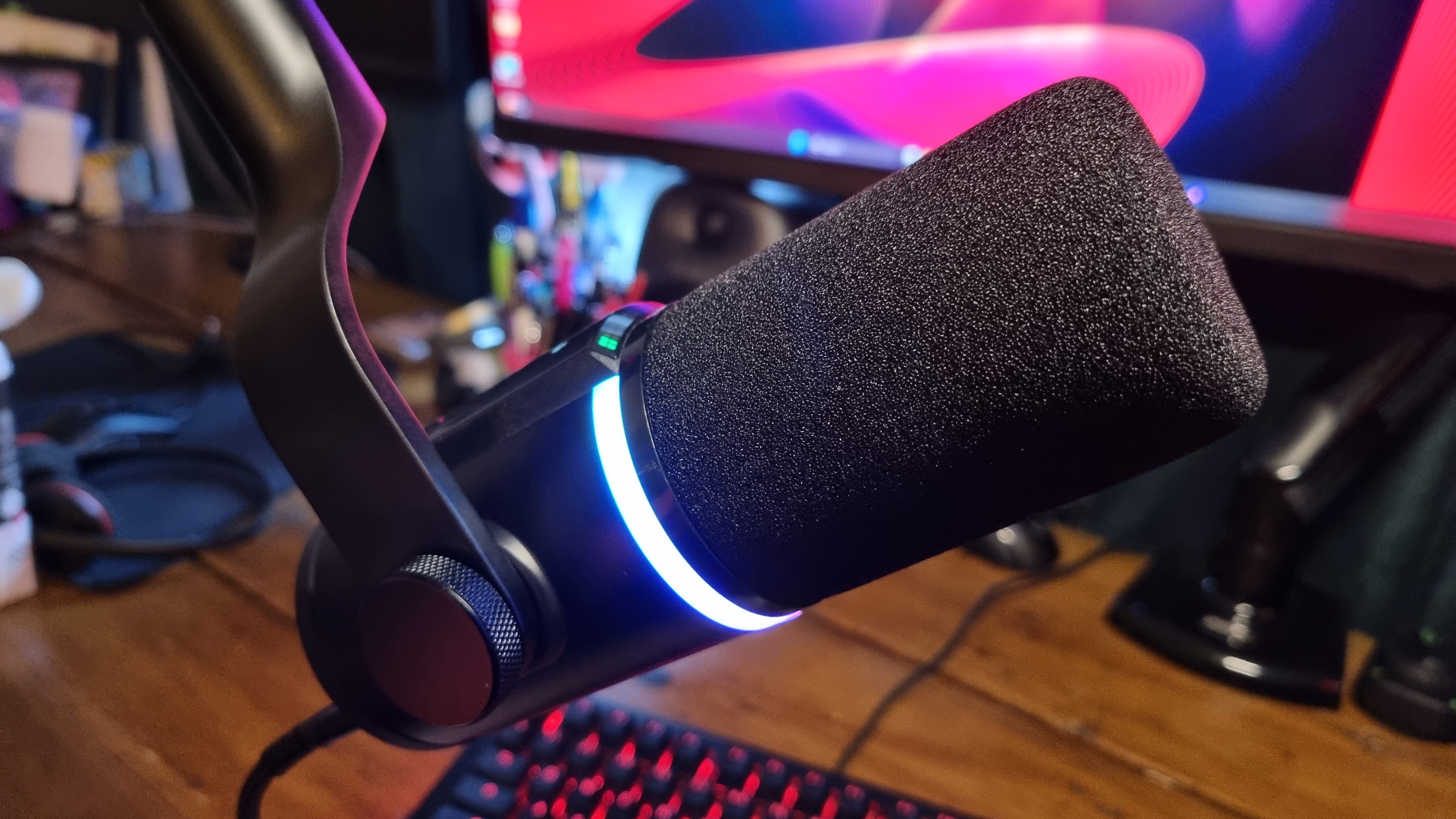Our Verdict
Cris Tales never manages to build its curious premise into an entertaining tool.
PC Gamer's got your back
What is it? A time-altering JRPG set in a war-torn world
Developer Dreams Uncorporated, SYCK
Publisher Modus Games
Reviewed on Intel Core i7-5820K CPU @ 3.30GHz, 8GB RAM, Nvidia Geforce 950, Windows 10
Multiplayer? No
Release Out now
Link Official site
The butterfly effect—the theory that changing something in the past, however small, could have a huge impact on the present—is a central tenet of any number of time travel stories. Cris Tales is no exception. Simultaneously showing you the past, present, and possible future of its fantasy world, it seems to invite you to make those changes. But beyond a few oft-repeated ideas, it never fully commits to the concept.
After being lured to the altar of the local cathedral by a talking frog, orphan Crisbell discovers that she is a Time Mage, an order of magic users whose abilities allow them to perceive and alter the flow of time. In Crisbell's case, that means embodying an aspect of The Lady, a religious figure split into three aspects of herself: a little girl from the past, a young woman from the present, and an old lady in the future.
When she discovers her powers, Crisbell's own sense of reality becomes similarly splintered. As she moves through the world, her perspective is centered on the present, but to her left and right, the fractured screen shows glimpses of the past and future. As you walk past a guard, you might catch sight of an eager new recruit and a wizened old captain. Walk by a child and your future perspective will show them all grown up, while they might not have been born yet when you look at the past. The towns and cities change too; a thriving settlement might still be under construction on the left of the screen, but ravaged by war and decay on the right.
It's a well-visualised idea, but it rarely comes to much when you're moving around the world. Within the cities, it's used most often for uncovering resource caches that no longer exist in the present. Move beyond the walls, and the system is often abandoned entirely, replaced by an ability that allows you to revert obstacles to their past states for some simple puzzle-solving.
When it comes to combat, the system is realised slightly more effectively. On her turns, Crisbell is able to change the timeline of the enemies around her, rewinding those on her left back into their past, and sending those on her right forward into their future. Doing so might change their abilities—a troublesome insectoid monster can be reverted back to its larval stage, in which it loses access to its most powerful attacks—but can also impact your strategy.
For much of the game, Crisbell is fighting alongside Wilhelm, another Time Mage who has focused his skills around nature. His martial prowess is lacking, so instead of swinging a sword, his most potent abilities revolve around the use of mandrake-like Yucandra seeds, which can either be planted for a payoff that'll hit all nearby enemies in a few turns' time, or thrown for an immediate effect against one target. On Wilhelm's turn, you may decide to use a poisonous seed, which applies damage over time to anyone it hits. On her turn, Crisbell can then transport the target forward in time, dealing all of the poison damage at once, finishing off most enemies in a single two-turn combo. If the seed is planted in the present, Crisbell can fast-forward time to cause it to sprout immediately, poisoning everyone on that side of the battle. It's a multi-faceted idea that initially promises a lot of flexibility and inventive approaches.
But those approaches never really manifest. Fights against normal enemies are often too short to warrant the extended set-up that these time-based combos rely on, meaning it's far more efficient to simply use standard combat moves or spells. Boss fights are even more limiting, with many either dishing out too much punishment to spend several turns establishing a plan, or actively limiting the use of your powers. One boss used a spell to take control of Crisbell, immediately revoking any attempt to send them back to the past, essentially cancelling out the most interesting aspects of two of my characters.
Keep up to date with the most important stories and the best deals, as picked by the PC Gamer team.
Later on, as new characters arrive in the roster, Crisbell's powers take even more of a back seat. K, an android-like creature with powerful martial abilities, can move enemies from one side of the screen to the other to help set-up extra AoE, but doesn't interact with Crisbell at all. Yas, whose moves all have a degree of random chance, has abilities that change depending on the temporal zone that she uses them in, but only slightly. In the end I found myself relying almost entirely on spells and attacks that would pay off within a single turn, not wanting to risk the damage I might take by setting up a complex combo that might not even land.
Crisbell's ability to manipulate the flow of time is placed front and centre of CrisTales' narrative and combat, but while it's an interesting idea used to great visual effect in the bright and often charming world, it's cripplingly underutilised within the rest of the game. There aren't enough opportunities to play with your powers in combat encounters that are either too trivial or too punishing to warrant meaningful experimentation, and in the world itself the idea is either abandoned entirely or limited to a tool for exploration and resource gathering. With its most compelling feature relegated to little more than a curio, and a narrative simply not beefy enough to do the heavy lifting required to make up for it, CrisTales fails to build on its promising foundations.
Cris Tales never manages to build its curious premise into an entertaining tool.




